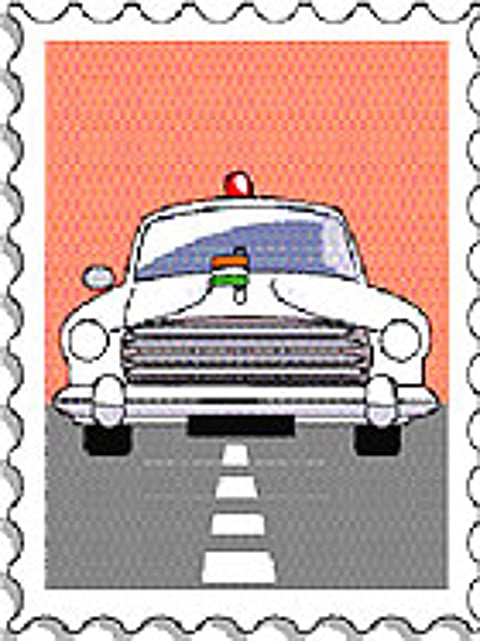Good Guy, But Not the Best
Delhi Diary
Mr Basu’s contributions to the CPI(M) are no doubt substantial, but surely he wasn’t the man news channels and editorials mourned.

The gushing eulogies to Jyoti Basu have overturned Shakespeare’s dictum—“the evil that men do lives after them, the good is often buried with their bones”. Mr Basu’s contributions to the CPI(M) are no doubt substantial, but surely he wasn’t the man news channels and editorials mourned. I am not discounting his two solid achievements (land reforms and guiding his party towards accepting parliamentary democracy), nor am I discounting the tendency to exaggerate virtue and suppress vice that usually follows the demise of a public figure who has had a long and fruitful innings. It seems political longevity and personal amiability have combined to mount an assessment which is a tad too generous. Malcolm Muggeridge tells the story of a Labour minister who was so effusively praised at a conference that he began his speech by saying, “When people tell me who I am, I can hardly wait to hear myself speak.”
Much has been made of the 1996 “historic blunder”, when it seems a malign and myopic CPI(M) central committee denied Jyotibabu the honour of becoming India’s first Communist prime minister. We now know that H.K.S. Surjeet and Mr Basu were extremely keen that the CPI(M) join the United Front government, thus allowing the West Bengal CM to move to Delhi. The objections, we are informed, were entirely bogus. Were they? The UF government came to power with the support of the Congress in tumultuous times. Dr Manmohan Singh had already opened up the economy, initiating far-reaching reforms, the Cold War had ended, with India eager to improve relations with the US. And Chidambaram was set to be finance minister with a mandate to vigorously continue the reforms process.
How would Basu, a pragmatic but unbending Communist, have coped with running such a government? There was not just the question of being unable to influence policy; there was the distinct possibility that he would have to implement policies that were anathema to his party. Comrades Karat and Yechury understood and saw the wisdom of “outside support”, thus sanctioning the “historic blunder”.
Basu may have proved to be the best prime minister India never had. However, the opposite must also be considered.
Red to Pink
Jyoti Basu did not become a Communist on the playing fields of Calcutta’s Presidency College. He became, like many of his generation and background, a Communist in Britain, as did Rajni Patel, Indrajit Gupta, Mohan Kumaramangalam, Nikhil Chakraborty.... Basu did not go to Oxford or Cambridge, which produced Communists by the dozen, but studied in London. In the ’50s and ’60s, Cambridge (and to a lesser extent Oxford) was the training ground for Communists. Sons and daughters of the rich and eccentric took to Karl Marx and announced the Soviet Union as the new “utopia”. There is a homosexuality angle too. Many Cambridge Communists were gay and buggery was a cognisable offence in the UK. So they began raiding public lavatories—where young, working-class boys hung around—looking for “rough sex”. This was probably their way of keeping in touch with the proletariat! Many of these left-wing intellectuals fled to the States (Isherwood, Auden) where homosexuality was freer. Some took to espionage for the Soviet Union. Their double life helped them become perfect spies.
My uncle Mohit Sen, who became a Communist at Cambridge, was once invited to tea by E.M. Forster, a gentle but enthusiastic homosexual. “What a good-looking young man you are,” said Forster as he served tea and cakes and moved closer to him. When my uncle, in awe of Forster, showed some unease, the latter gallantly said, “Don’t worry young man, nothing is done without consent.”
Arrogantly Aussie
I was an Australia-lover. For four days, it is a great country to visit. Then the superb weather, superb food, superb scenery begins to bore. Nevertheless, I can never forget a sojourn with my pal Mario Miranda across the country in the ’80s.
Now, I have become an Australia-hater. It is not just the over-100 vicious attacks on Indian students in one year. It is the smug and superior attitude of the Aussies who continue to deny they have a racial problem on their hands. A nation which has treated its indigenous population disgracefully can have difficulty accepting the charge of racism. But that is of no concern to us. All we want is the attacks—call them what you will—to stop.
A Sulking Ed
On our return from a 10-day holiday in Myanmar, we were faced with a domestic crisis. Editor, instead of greeting us, sulked. Understandably. This was the first time we had been away and out of touch with him. Since there’s no mobile connectivity in Myanmar, we were unable to talk to Editor. How do you talk to a dog long-distance? We call Chanda, Editor’s minder, she puts the mobile on his ear. I shout some sweet nothings and he barks. This time that routine could not be followed. Editor has extracted a promise from us: we will not go to a country where mobiles don’t work.
Tags